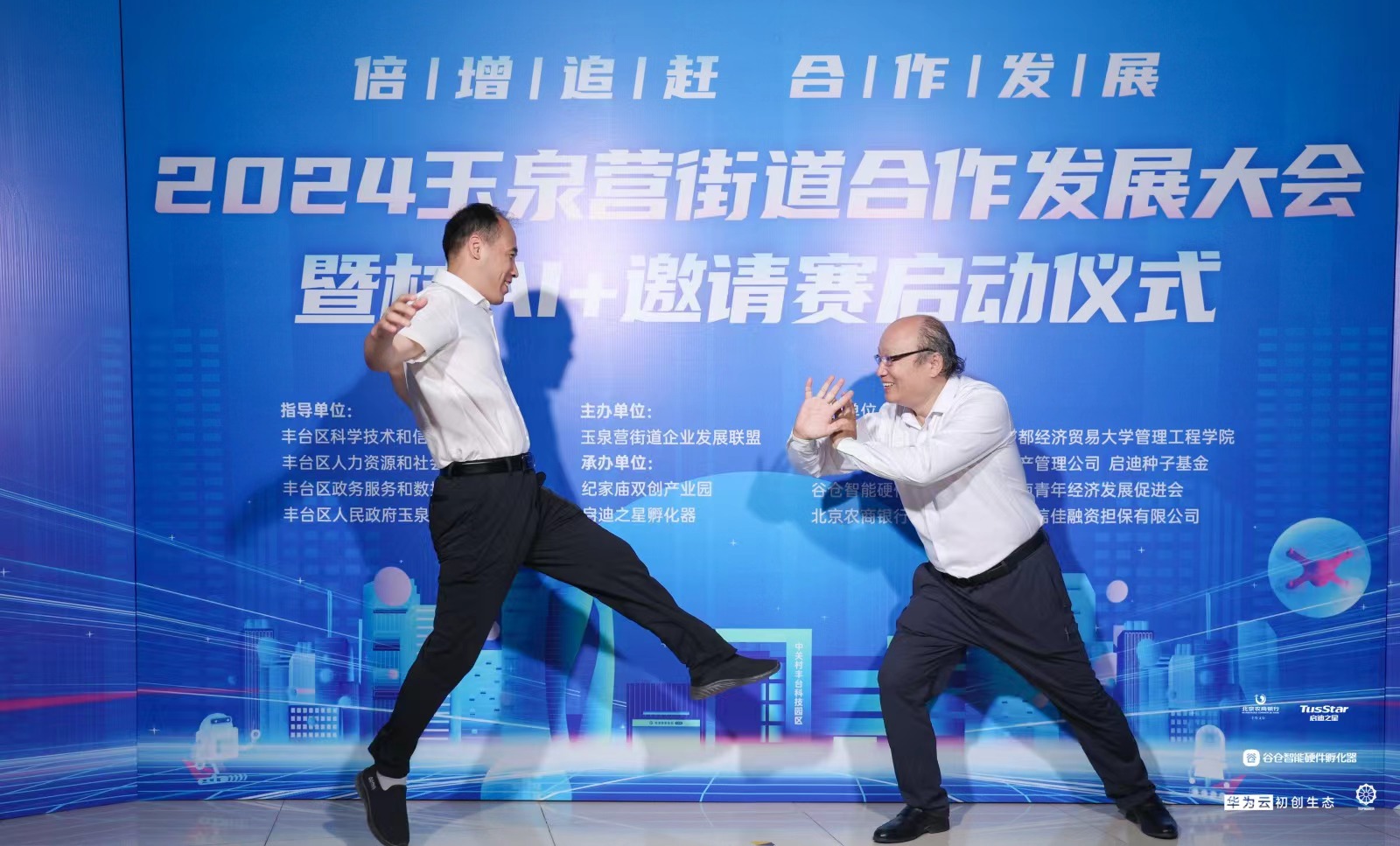By?LI?Linxu
As one of the important engines of new quality productive forces, AI is increasingly taking root in our society and transforming everyday lives.
To ignite enthusiasm in AI innovation and application, Yuquanying street, located in Beijing's Fengtai district, has initiated an AI+ tournament, calling for participation from universities, institutes and start-ups.
By now, more than 20 AI teams have registered to take part in the tournament, including teams from Tsinghua University, Peking University, Beihang University and the Chinese Academy of Sciences.
Fengtai is fostering an industrial ecology for AI development featuring openness, coordination, and sharing, said Gao Chongyao, the district's deputy mayor, adding that such an innovative tournament is expected to further spur entrepreneurship and investment in AI, advance the deep integration of AI with the real economy, and boost the transformation of traditional industries.
Beijing Volumetric Capture Technology, one of the participating teams, is pioneering AI-based algorithms to create digital humans. The technology has been applied in a number of sectors, Guo Songjie, the company's CEO, told Science and Technology Daily (S&T Daily), citing the example of its AI-generated world champions being used in Taekwondo training.
Like the steam engine in the industrial revolution and personal computer in the information age, AI is transforming every sector of human society, creating both opportunities and challenges, Zhou Tianyi, deputy director of the A*STAR's Center for Frontier AI Research, Singapore, told S&T Daily, noting that with its massive data and vast market, China possesses unique advantages in AI development.

Guests experiencing an innovative photography technique called Bullet-time 3D Photo at the launch ceremony of an?AI+?tournament in Beijing.?(COURTESY PHOTO)
Along with the tournament's launch ceremony, a roundtable dialogue was held to better seize the opportunities and address the challenges brought by AI.
Sun Jingwei, managing partner of Tengye Ventures, believes that as AI technologies become more mature, the development of AI has entered the fast lane, bringing changes to our work and life. He is looking forward to seeing more innovative AI applications targeting the urgent needs of consumers and industries.
Ma Lei, associated research professor of the College of Future Technology, Peking University, is also a strong believer in AI. He sees great potential in the application of AI in healthcare, particularly for medical imaging, diagnostic disease prediction, disease prevention and treatment.
Although there are uncertainties ahead, AI will progressively move towards general adoption, with each breakthrough uplifting productivity and democratizing intelligence, said Yu Fanghao, head of the investment and M&A team from Baichuan AI, noting that large language models have already been experimentally used to assist doctors in diagnosing diseases.
"We are all in AI," said Chui Wenwei, investor from Baidu Venture, adding that AI is changing the fundamental structure of information, generating productive forces in digital and physical spaces.
AI is one of the few general technologies that can bring revolutionary impact on economic and social development, said Chen Ping, CTO of Baizhi Embodied Robotics, forecasting that AI will become a major growth engine in the coming decades.
The trio will conduct a series of experiments in fields such as life science, fluid physics, combustion science and materials science. Notably, this is the first time that fruit flies have been taken on a Chinese space mission as experimental subjects. What made scientists choose fruit flies? What experiment will they undergo?
